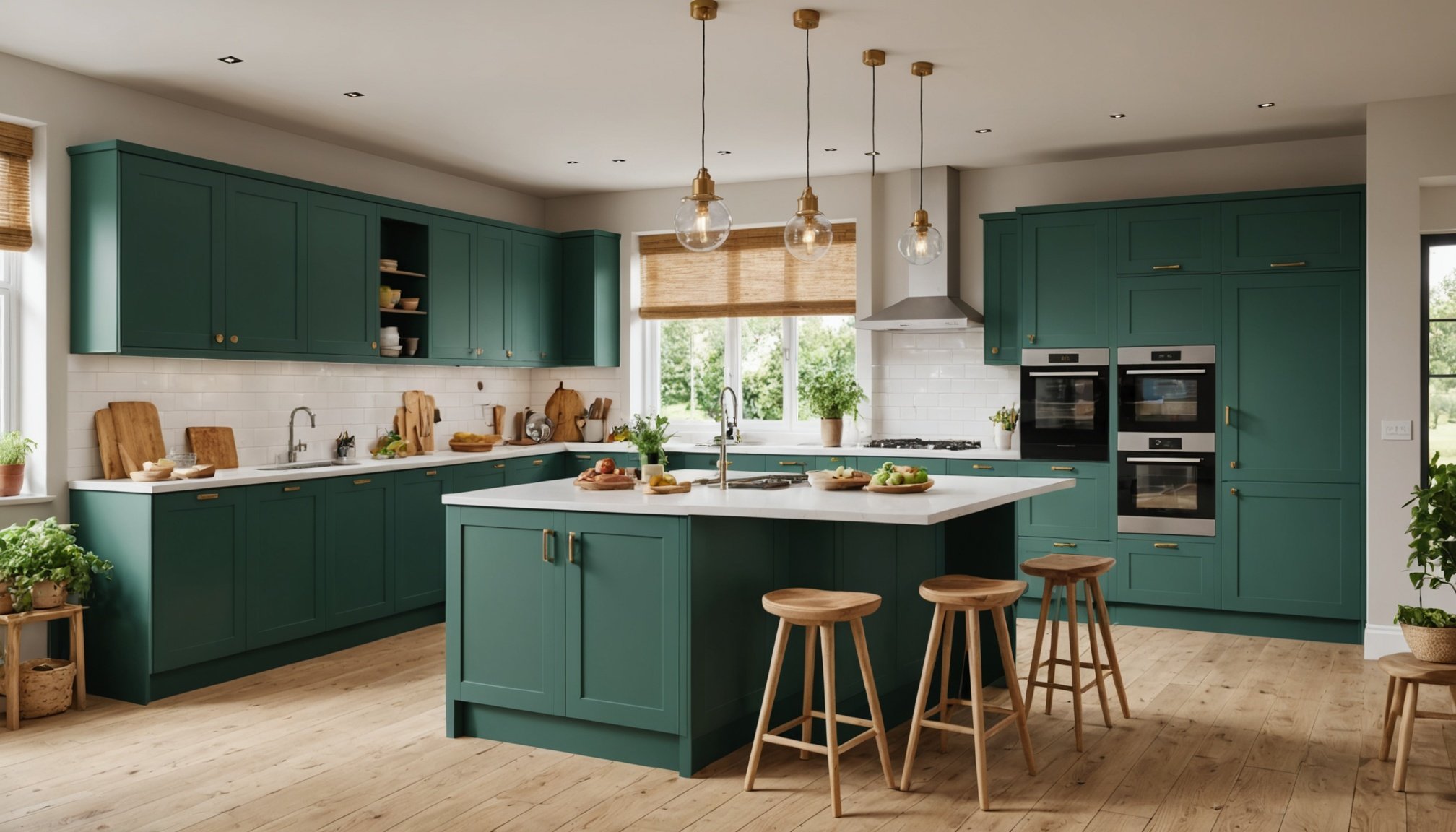In today’s world, the growing concern for the environment has led many individuals to rethink their choices, particularly in the kitchen. The kitchen is often the heart of the home, but it can also be a significant source of waste, energy consumption, and reliance on plastic. Transitioning to an eco-friendly kitchen involves making conscious decisions about materials, appliances, and practices that reduce waste and promote sustainability. This article will explore practical strategies to help you create a more sustainable kitchen, focusing on natural, reusable, and efficient options that make a significant impact on your household’s overall ecological footprint.
Selecting Sustainable Materials for Your Kitchen
When it comes to designing a sustainable kitchen, the choice of materials plays a crucial role. Opting for eco-friendly alternatives not only minimizes your environmental impact but also enhances the aesthetic appeal of your space. One of the first areas to consider is cabinetry. Traditional wooden cabinets can be a great option, but ensure they are sourced from sustainable forests, certified by organizations like the Forest Stewardship Council (FSC). This certification guarantees that the wood is harvested responsibly.
Also read : How do I choose the right kitchen lighting fixtures for mood and functionality in the UK?
Countertops are another vital element where you can make eco-conscious decisions. Materials like recycled glass, bamboo, or even reclaimed wood offer durability and sustainability. For flooring, consider natural materials such as cork or bamboo, which are renewable resources and have a lower environmental footprint compared to conventional options.
Additionally, think about your choice of appliances. Look for those that are energy-efficient, carrying the ENERGY STAR label in the UK. These appliances use less energy and water, significantly reducing your utility bills and environmental impact. Investing in energy-efficient appliances not only saves money over time but also contributes to a reduction in greenhouse gas emissions.
Also to read : How can I make my UK kitchen more accessible for individuals with mobility challenges?
By carefully selecting sustainable materials, you can create a kitchen that is not only beautiful but also reflects your commitment to the environment. Investing in these choices can lead to a more efficient home while promoting a healthier planet.
Water and Energy Efficiency in Your Kitchen
Implementing water and energy-efficient practices in your kitchen is essential for reducing your environmental footprint. Simple changes can lead to significant savings over time. Start with your faucets; consider installing low-flow fixtures that restrict water flow without sacrificing pressure. This small adjustment can dramatically reduce your water usage without compromising on functionality.
Next, focus on your appliances. Many modern kitchens are equipped with dishwashers and washing machines that are designed to be more efficient. Ensure that these appliances are used only when they are full to maximize their efficiency. Furthermore, consider using a dishwasher instead of handwashing. Dishwashers typically use less water than washing dishes by hand, provided they are run efficiently.
In terms of energy, use LED lighting throughout your kitchen. These bulbs consume significantly less power and have a longer lifespan compared to traditional incandescent bulbs. When cooking, try to utilize the right-sized burner on your stove; using a small pot on a large burner wastes energy. Additionally, keep your oven door closed while cooking to maintain heat. Each time the door is opened, the oven temperature can drop by as much as 25 degrees Fahrenheit, which leads to longer cooking times and higher energy consumption.
Another effective way to save energy is by integrating smart technology into your kitchen. Smart thermostats and smart energy monitors can help you track and optimize your energy usage. Such technologies allow you to monitor your energy consumption patterns and make informed decisions to reduce waste. Implementing these strategies not only conserves resources but also fosters a more efficient kitchen.
Reducing Food Waste in Your Kitchen
Food waste is a significant issue in our society, and the kitchen often serves as the starting point for change. Reducing food waste not only conserves resources but also contributes to a more sustainable lifestyle. Start by planning your meals ahead of time. Meal planning can help you buy only what you need, ensuring that food is consumed before it spoils.
Consider adopting the practice of using leftovers creatively. Transform last night’s dinner into a new meal, or use vegetable scraps to make stock. Composting is another effective way to divert food waste from landfills. By setting up a compost bin, you can turn kitchen scraps into valuable natural fertilizer for your garden.
Storing food properly can also minimize waste. Use reusable containers to keep leftovers fresh and organize your fridge to ensure older items are used first. Clear bins can help you see what you have at a glance, reducing the likelihood of items being forgotten and going bad.
Finally, educate your family about the importance of reducing food waste. Encourage them to only take what they can eat and to understand the benefits of sustainability. By fostering a culture of mindfulness regarding food consumption, you not only reduce waste but also promote an environmentally conscious household.
Incorporating Reusable Items into Your Kitchen
Transitioning to reusable items is a fundamental step towards creating an eco-friendly kitchen. Evaluate the common single-use items in your kitchen and replace them with durable alternatives. For instance, replace plastic wrap with beeswax wraps or silicone lids. These options are not only stylish but also significantly reduce plastic waste.
Investing in reusable shopping bags is another effective way to cut down on plastic consumption. Having a set of sturdy, washable bags for your groceries can help you avoid the convenience of single-use plastic bags. Similarly, consider using reusable containers for storing food. Glass or stainless steel containers last longer than plastic ones and do not leach harmful chemicals into your food.
When it comes to utensils and tools, opt for products made from natural materials like bamboo, which is both sustainable and biodegradable. Avoid plastic utensils, as they contribute to environmental pollution. Instead, focus on items that can be used multiple times and are easy to clean, promoting both usability and sustainability.
Lastly, focus on your cleaning products. Switch to eco-friendly cleaning solutions or make your own using natural ingredients like vinegar and baking soda. This not only reduces the number of chemicals in your kitchen but also minimizes plastic packaging waste.
By integrating reusable items into your kitchen, you can significantly reduce your ecological impact while fostering a more sustainable lifestyle.
Creating an environmentally friendly kitchen requires a multifaceted approach that considers materials, energy, water efficiency, food waste, and the use of reusable items. By making informed choices, you can transform your kitchen into a space that not only serves your culinary needs but also aligns with eco-conscious values. Implementing these strategies promotes a healthier planet and encourages a culture of sustainability within your home.
As you embark on this journey towards a more sustainable kitchen, remember that every small change contributes to a larger impact. Whether it’s opting for sustainable materials or reducing food waste, each step taken is a step towards a greener future. Embrace these practices with enthusiasm, and inspire others to join the movement towards eco-friendly living in the kitchen and beyond.











